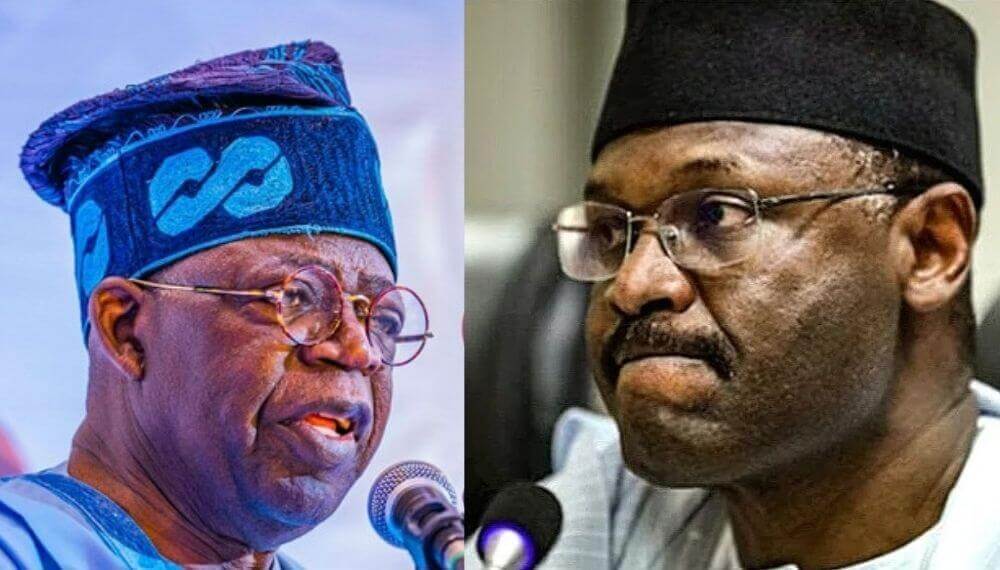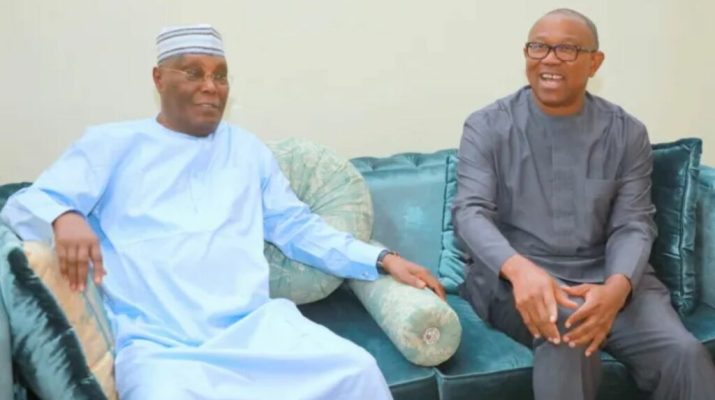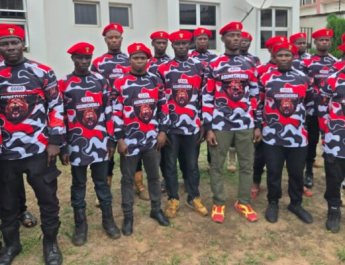Two years into the 2027 presidential election, analysts wonder why the opposition parties and presidential aspirants are still silent on the need for the compulsory deployment of the INEC’s electronic devices for credible contest
By Udoka Ekeleme, Abuja
A political analyst said, “Mark my word, President Bola Ahmed Tinubu had already won the 2027 Presidential election. This is not on account of his popularity or acceptance by the people. No, it’s about the umpire, the INEC’s alliance with the executive, under Mahmud Yakub. The gimmick of defections is only a ploy to deceive the uninitiated that governors are in his support, and that opposition parties are in disarray.
“I bet you that the votes of the masses will not count in 2027 because already INEC under its present leadership has been compromised, and whoever takes over from Yakubu must toe the orchestrated line of defrauding the people as far as Tinubu is concerned “.
“As long as there is no legislative framework that can compel INEC to transmit election results from polling units to its election viewing portal, real time, the presidential election of 2027 will be far worse than that of 2023, because there will be unprecedented manipulation. The truth is that APC had lost credibility since the Buhari era, worse still, the Tinubu government policies that have given the resources of the country to the ruling class and impoverished the masses, have made Tinubu an unpopular figure in the minds of Nigerians.
“The only option available to APC to sustain its rule of tyranny is the use of INEC and the compromised courts to rig the election massively in favour of APC and President Tinubu, heavens will not fall”.
When asked to comment on the amendment of the Electoral Act to accommodate transmission of the results, he retorted with noticeable sarcasm, “Who will push for that; the weak and compromised National Assembly? But even if they summon courage to embark on such futile journey, it will only be a move to cajole the masses because Tinubu will never sign such amendment into law. This is because he knows if assent is given to such pro-masses law, he would definitely lose the election to Peter Obi or any other credible opposition candidate.
“You can’t talk of any pro-masses amendment of the electoral Act for now”.
This commentator, despite the near-death of formidable opposition parties, and identified presidential candidates at present, still aligned himself with former governor of Kaduna State, Mallam Nasir el’Rufai that the All Progressives Congress (APC) government under President Bola Ahmed Tinubu has lost the trust of the people due to festering insecurity and economic crisis that has reduced the living standard of the masses.
In a recent interview, el’Rufai had hinted that he had embarked on the assessment of the performance rating of Tinubu by the masses, and found that the sitting president had lost reelection credibility in the entire Northern region, South east and Lagos State respectively. Hence, el’Rufai insisted that if a credible presidential election can be conducted in 2027, Tinubu would lose woefully.
The former Minister of the Federal Capital Territory (FCT) had said in the interview, “We have done some polling. And I have mentioned some time ago that in many parts of the country, particularly in the South east and the North, President Tinubu has 91 percent disapproval rating. Even in Lagos, he has 78 percent disapproval”.
In his recent interview, el’Rufai may have re-echoed the view of numerous Nigerians, particularly that of the Catholic Secretariat of Nigeria (CSN), which believed that Tinubu is unable to win in any free, fair and credible election.

During its 2025 Communications Week’s Public Lecture and Posthumous Award for late High Chief Raymond Dokpesi, owner of the Africa Independent Television (AIT), in Abuja on Wednesday, May 28, 2025, a high ranking member of the CSN, Archbishop John Cardinal Onaiyekan, stressed that the government of President Tinubu had lost popularity and credibility due to its inhuman policies that have rendered millions of Nigerians poor.
The Archbishop Onaiyekan insisted that if a credible election would be held in 2027, Tinubu cannot defeat his opponents. According to Onaiyekan, “If he (Tinubu) continues like this for the rest of his term, if we have a free and fair election, he will not win. Because how can the country bring him back if we are not feeling good?”
Not a few opposition leaders believed that had the Independent National Electoral Commission (INEC’s) electronic devices used for the 2023 general election not developed “glitches” during the presidential poll, Tinubu might not have won the election of that year. During the 2023 election, INEC had deployed two innovative electronic devices known as the Bimodal Voter Accreditation System (BVAS) and the INEC Election Viewing Portal (IReV) which sought to enhance transparency of election results and boost citizens’ trust in the election outcomes.
The electronic tools innovation was also intended to prevent votes falsification at the polling units, prevent falsification of numbers of accredited voters, address the collation of false results, mutilation of results and computational errors, swapping of result sheets, forgoing of result sheets, poor record keeping among such other discrepancies.
The Electoral Act amendment of 2022 had given the INEC power to deploy these devices during the election with a caveat that the election umpire has a choice for manual application where the devices fail. The BVAS and IReV would perform mutually as the former would identify accredited voters’ fingerprints and facial recognition before voting and upload image of result sheets online, while the latter is an online portal where polling units results would be uploaded directly real time for public viewership.
The BVAS and IReV functioned optimally for other elections but functioned only halfway with the presidential poll where the INEC terminated real time upload of results, citing glitches. Many people had alleged that both Peter Obi the presidential candidate of the Labour Party (LP) and Atiku Abubakar, the candidate of the People’s Democratic Party (PDP), were ahead of Tinubu who ran on the platform of the All Progressives Congress (APC) before the glitch was discovered.
Notably, in all the results that were uploaded before the glitches disrupted the real time upload, it was clear that Obi was far ahead of Atiku, and Tinubu who was coming distant third in the order. But INEC had deployed manual transmission of results which allegedly upturned Obi’s leadership and placed Tinubu as the winner of the 2023 presidential election. Both Obi and Atiku contested the outcome of the election up to the Supreme Court and lost.
A political analyst, Peter Ameh, had alleged that without the claim of glitches by the INEC, Obi won in Rivers State and majority other states in the Southern part of Nigeria. Ameh alleged that Obi lost to Tinubu in Rivers due to results manipulation. He claimed in an interview that come 2027 presidential election, Obi can still defeat Tinubu across the country if the INEC would do the right thing.
According to Ameh, Tinubu’s government is already in panic two years ahead of the 2027 presidential election because “APC has worsened the economic situation in the country. The level of the mismanagement of the economy is alarming”.
Another analyst, a political heavyweight in one of the opposition political parties who craved to remain unidentified in print, told this medium that Tinubu will be relying heavily on INEC manipulation to return to the Aso Rock Presidential Villa in 2027. According to him, “No poor citizens-the real voters-will want to cast their votes for Tinubu in 2027. Let’s forget about the so-called defections. It’s only the political elite that are doing that, but they are not the real voters. What is the number of their votes compared with the number of the poor citizens who will vote?
“The issue is that INEC cannot deploy electronic devices fully during 2027 election because, they know that if the election is made credible by the BVAS and IReV, 90 percent of those holding elective offices cannot win even in their polling units. “Who will vote for them? “




